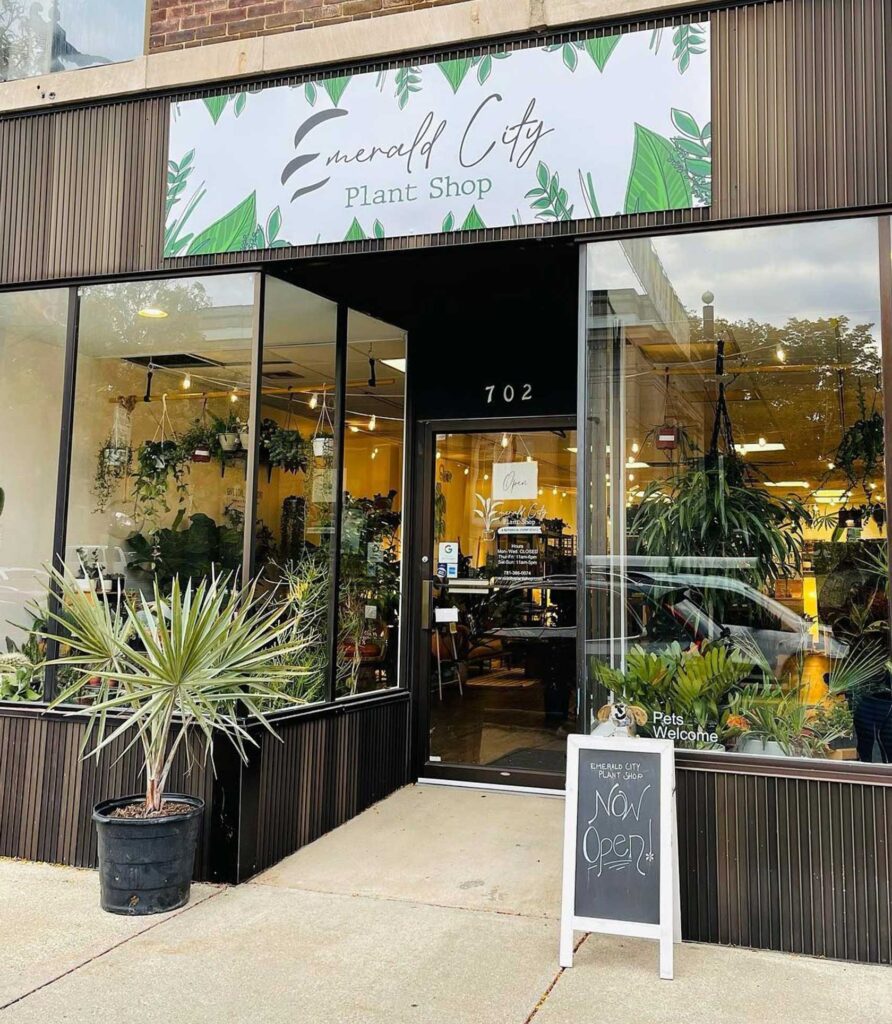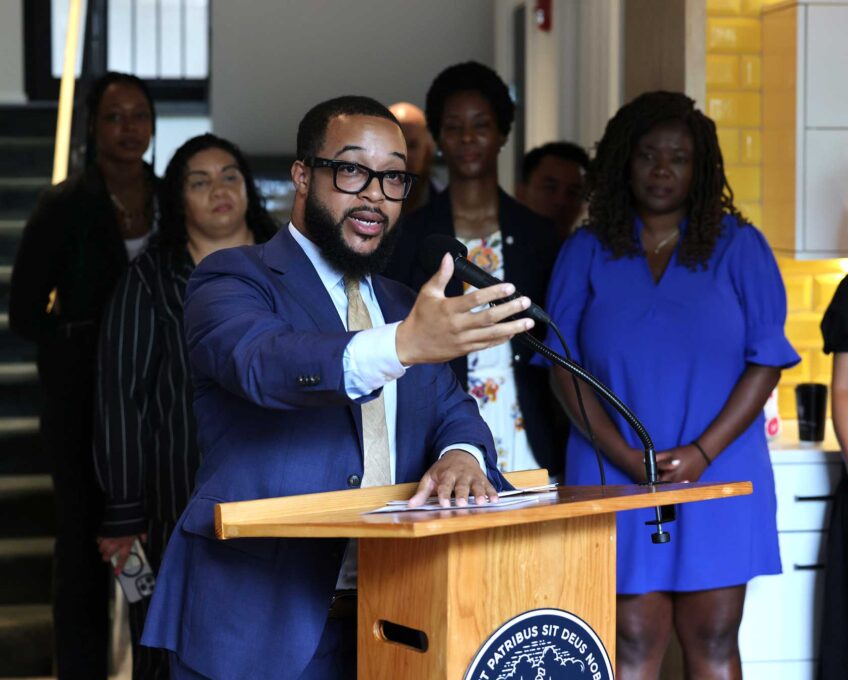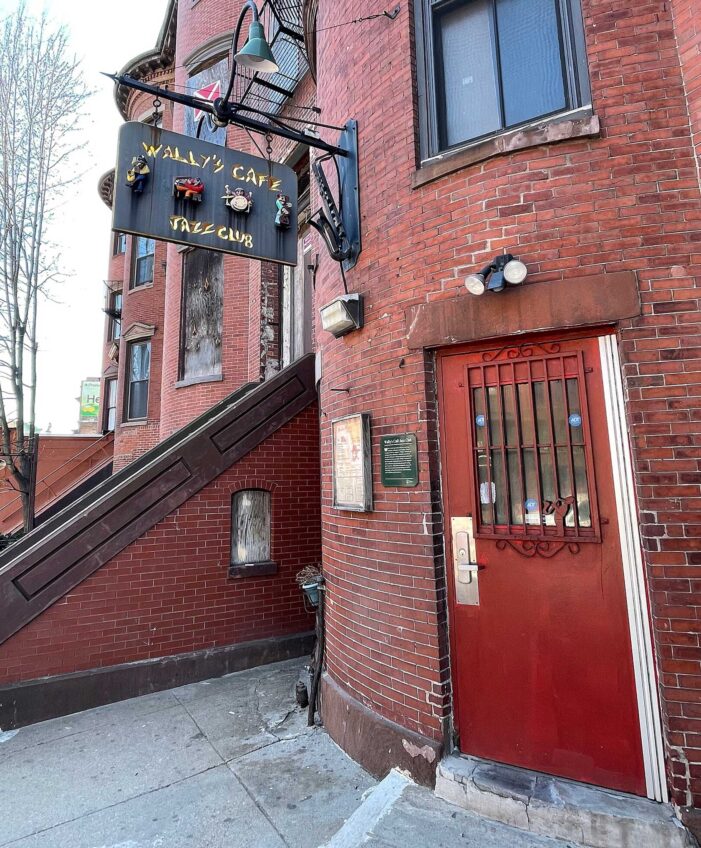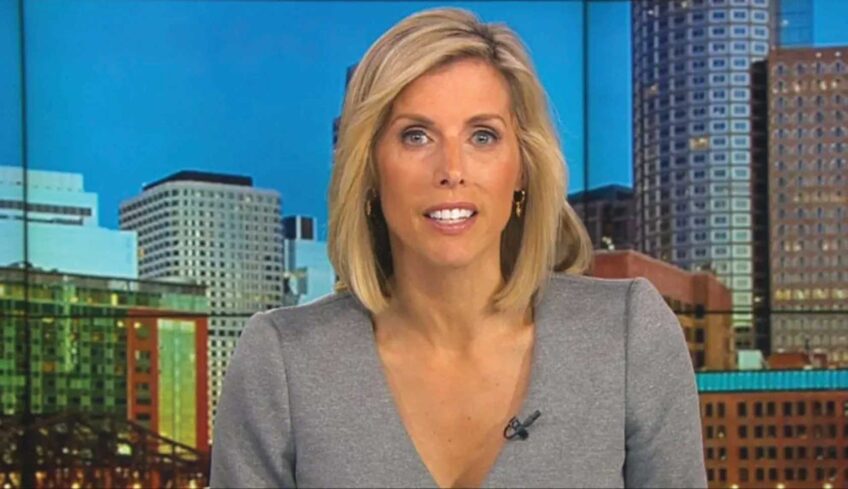
In the United States, 99.9% of firms are small businesses, according to the U.S. Small Business Administration. These 33 million establishments run the gamut from mom-and-pop shops to tech startups, and their contributions to the economy are notable. They employ tens of millions of Americans, create new jobs and contribute to the country’s exports.
To give these enterprises a boost, American Express created Small Business Saturday in 2010. Co-sponsored by the SBA since 2011, the event occurs on the Saturday after Thanksgiving — this year on Nov. 30 — and encourages consumers to do their holiday shopping with small businesses.
Over the last 15 years, the day has had a positive impact. Small Business Saturday generated about $17 billion in spending in 2023 and a total of approximately $201 billion since its founding in 2010.

Quontay Turner, owner and chief creative of Emerald City Plant Shop in Norwood. COURTESY PHOTO
Emerald City Plant Shop, in Norwood, participates in Small Business Saturday every year and sees some of its biggest sales on that day, said Quontay Turner, the store’s owner and chief creative. This year, Emerald City Plant Shop will offer a 20% discount on all its plants and invite vendors to promote their wares in the store.
Turner founded Emerald City Plant Shop, the first Black-owned plant shop in New England according to its website, three and a half years ago. Owning and running a small business has “been a roller coaster,” she said.
Particularly challenging is competing with big box stores like Amazon, which promise lightning-speed delivery and offer wide-ranging inventories at low cost. Small Business Saturday is an opportunity to remind consumers of the value of shopping small and local.
“In today’s society, people are so used to instant gratification, and people don’t necessarily realize what it takes to create a product and how difficult it can be. … So I feel like it’s particularly important on this day for people to realize just how much it takes for your neighbor, your friend, your family member that is running a business to keep afloat through these times,” she said.
There’s a common misconception that there are “whole operations behind” small businesses, Turner said, when in many cases, one person is running the show with occasional help. If operations such as delivery or customer service take a little longer than people are used to, it’s because many small business owners have to juggle various roles.
“We are the creator. We are the marketer. We are the troubleshooter,” Turner said. “We are all the things.”
Hadley Douglas, president of The Urban Grape, is familiar with the balancing act of running a small business.
“Every single day, you’re wearing a million different hats and bootstrapping it to grow your business and taking care of your employees and trying to create an interesting and vibrant community,” she said.

Hadley and TJ Douglas, owners of The Urban Grape. COURTESY PHOTO
Douglas founded The Urban Grape with her husband TJ Douglas in 2010 to “make the wine industry a more inclusive and accessible place,” she said. With a location in the South End and a newly opened one in Washington, D.C., The Urban Grape offers a wide selection of wines, many crafted in New England, and social events.
At The Urban Grape, “every Saturday is Small Business Saturday,” Douglas said. The wine shop offers free tastings each Saturday and invites other small businesses to pop up in the store and promote their products and services free of charge.
“It’s just our way of lifting while we climb and making sure that we are always highlighting other small businesses to the people that choose to patronize our small business,” she said.
On Nov. 30, The Urban Grape will pour a selection of its favorite wines and host small businesses And Soaps and Cape Ann Sea Salt.
Douglas said small businesses offer personalized experiences and contribute to their communities in ways big box stores don’t.
“Money that goes into … a locally owned small business, the majority of it stays in the local economy. So I think that’s so important for people to understand,” she said. “These are your neighbors that own these businesses … and the money that flows through our store in so many ways goes to support our local economy.”
Emerald City Plant Shop gives back to its community in May, its founding month. Every Saturday of the month, the store gives out free plants as a thank you, given that Turner established the store after raising capital through GoFundMe.
Many small businesses have small marketing budgets and rely on small-scale efforts to attract new customers. Emerald City Plant Shop, for example, participates in fairs throughout the year. The store also relies on word of mouth, so Turner said those looking to support small businesses this month or any other month of the year should spread the word.
Black Owned Bos. has a directory of Black-owned businesses on its website at blackownedbos.com.
Douglas said supporting small businesses is especially crucial this election year and encouraged people to leave reviews and take advantage of The Urban Grape’s referral program because the community keeps the store going.
Over the years, The Urban Grape has been a part of some of its customers’ milestones. Douglas has seen people go on first dates, get pregnant, get married, and bring their babies into the store.
“Small business owners are not getting rich doing this. It’s all passion and hustle and hard work, but we do it because we think that we add something to our communities,” she said. “And at the end of the day, that is what we love.”






